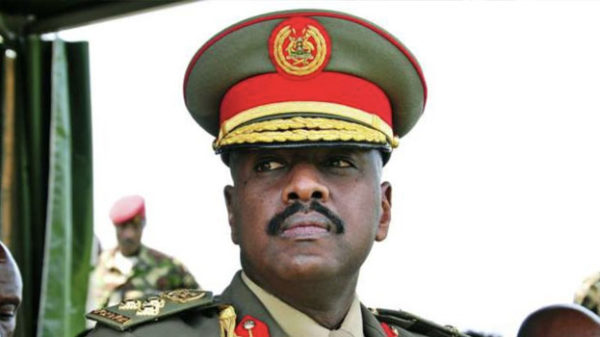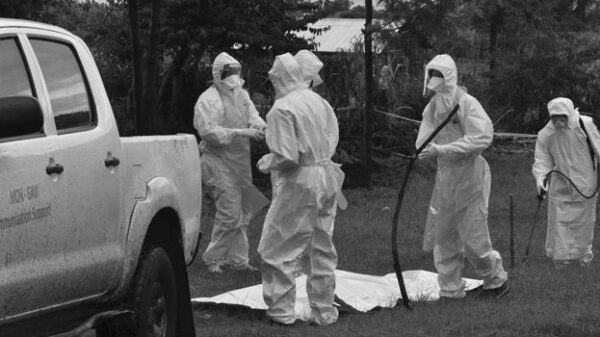NAIROBI, Kenya, May 26 – The Ministry of Gender, Children and Social Development is being accused of neglecting needy cases in its implementation of a programme launched in 2004 to benefit orphans and vulnerable children all over the country.
While some orphans and guardians interviewed said they have been receiving the money, a majority of others have accused the ministry of keeping them waiting more than five years.
The government runs a programme known as Cash Transfer for Orphans and Vulnerable Children who are entitled to Sh2,000 per month.
The cash transfer programme is supported by UNICEF, DFID and the World Bank.
UNICEF and global partners define an orphan as a child who has lost one or both parents. By this definition there were over 132 million orphans in sub-Saharan Africa, Asia, Latin America and the Caribbean in 2005.
This large figure represents not only children who have lost both parents, but also those who have lost a father but have a surviving mother or have lost their mother but have a surviving father, UNICEF says on its official website.
Of the more than 132 million children classified as orphans, UNICEF estimates that only 13 million have lost both parents. “Evidence clearly shows that the vast majority of orphans are living with a surviving parent grandparent, or other family member. 95 per cent of all orphans are over the age of five,” UNICEF says.
This definition sharply contrasts with concepts of orphan in many industrialized countries, where a child must have lost both parents to qualify as an orphan. UNICEF and numerous international organizations says they adopted the broader definition of orphan in the mid-1990s as the AIDS pandemic began leading to the death of millions of parents worldwide, leaving an ever increasing number of children growing up without one or more parents. So the terminology of a ‘single orphan’ – the loss of one parent – and a ‘double orphan’ – the loss of both parents – was born to convey this growing crisis.
Capital FM News held interviews with several orphans and guardians in parts of Nakuru and Kisumu, Murang’a and Machakos and stories told are incomprehensible, given the ministry has in its disposal up to Sh3 billion or even more to support them.
Some of those suffering are children whose parents have died, including those killed in the 2008 post election violence when at least 1,500 people were killed and half a million others displaced.
While others are aware of the cash transfer programme by the government, a majority have no idea such a kitty exists and do not even know how to go about registering for it.
Kennedy Rotich of Molo is one such person who expressed shock when Capital FM News asked him if he had received any support from the government to cater for the children under his care.
“I don’t know… I have never heard of it,” Rotich whose wife died seven years ago said. He works as a casual labourer at a neighbouring farm, and sometimes engages in other menial jobs in the neighbourhood to fend for his children.
James Nguyo who lives in the Pipeline camp for the displaced persons in Nakuru said the orphans he is catering for risk dropping out of school unless the government enrolls them in the Cash Transfer Programme.
“I am taking care of three orphans, one of them is my grandchild whose mother died sometimes back. I am also looking after two others who belong to my later sister,” Nguyo said. “I have never received any support from the government, I do not even know such assistance exists.
With the many challenges Nguyo is facing at the IDP camp, he tells us they sometimes go for days without food.
“We were living well when humanitarian organisations were here and they were giving us food, today we don’t have anyone to turn and even the government which is supposed to come to our aid is not doing anything,” he said as the innocent children aged between three and seven played nearby.
The old man staring at what to him seems like a bleak future is disappointed that the government is not bothered to help resettle them, leave alone including the orphans he is catering for.
Gender Minister Naomi Shabaan has previously said the programme’s overall objective “is to reduce vulnerability among orphaned children and to increase school enrolment.”
Her ministry was allocated Sh1.5 billion for the programme in the financial year 2011/12.
Luciana Waithera of Murang’a who looks after two orphans too does not understand why the government has not honoured its pledge to support them yet the programme is supported both by the government and international donors.
“The chief came around and took the names, that was in 2007 and up to date we have never been told anything. We would want to know what is happening,” Waithera said.
When contacted for comment, Monica Omoro the Public Relations Officer in the Gender Ministry pledged to organise an interview for us with the minister, but a week later we are still waiting.
However, there are those who receive the funds from the government but they say it is too little to cater for all their needs due to the harsh economic times.
“I receive the money for five orphans, but it is too little. I find it very difficult to budget for it,” said Judith Akinyi Onoka, a 45-year-old whom we traced in Kawese village of Kolua location in Kisumu East district in the outskirts of the lakeside town.
“Three of the orphans belong to my in-law who died together with her husband and two of them are my grandchildren from my daughter who died in 2009,” she said.
Sources at the Ministry of Gender, Children and Social Development told Capital FM News that sometimes people are registered to receive the funds without due diligence and Onoka is one such example.
“They never took any documents from us… I only gave out the names to the chief and we started receiving the funds, and after receiving the money for all these years, it is now they are asking for the details including the death certificates,” she said.
She said the money delays most of the time and the government never takes it upon itself to notify them in advance of any anticipated delays.
“We get the money through Postbank, but it delays for even two months. Like now we were supposed to receive it in April, we hope they will backdate it,” she said.
One of the cases we encountered is that of Pamela Akoth Wandiage, 39, of Kolua location who caters for eight children, her husband having died.
“I registered all the children but up to date I have not been given any feedback, the chief keeps saying I wait, I do not know how long I am going to wait yet some of my neighbours are receiving the funds,” Wandiege said, adding “the challenges I am facing are many, I just hope the government will respond soon.”
Her neighbour Elisha Adhiambo Osome, 40 caters for eight orphans and she has receiving the money since 2007.
“I receive the funds but they are just too little, three of the children are in school it cannot even pay the fees,” Osome said.
Hesbon Anditi, 44 who lost his wife in 2000 is another beneficiary of the project for his four children.
“My first born is in college and this money has been helping me pay fees, although I am struggling, it really assists me to meet the essential needs,” Anditi said.

































